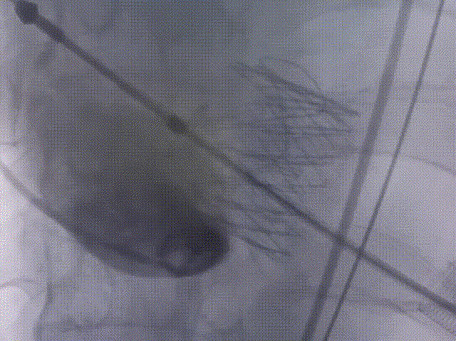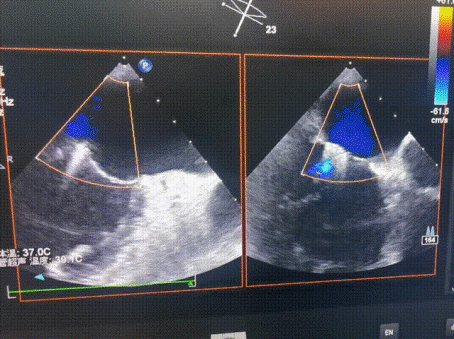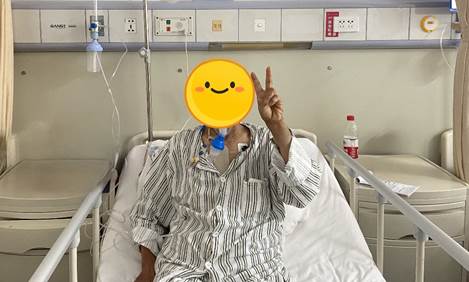Recently, the team from Department of Cardiovascular Surgery of the First Affiliated Hospital (FAH) of Xi'an Jiaotong University (XJTU) successfully performed one-stage "transapical TAVR+TEER" for a 79-year-old patient with complex heart valve lesions, captivating widespread observation and learning from international counterparts and peers. The success of this procedure showcases China's leading level in the field of minimally invasive cardiac intervention and also provides a novel idea for the treatment of complex heart diseases worldwide.
The male patient, surnamed Li (pseudonym), was admitted to a local hospital because of "chest tightness and shortness of breath for 5 years, which aggravated for half a year". He was diagnosed with valvular heart disease complicated with severe aortic valve insufficiency, severe mitral valve insufficiency and cardiac insufficiency (EF value=40%). Considering old age, complicated with heart failure, pericardial effusion, cerebral infarction and other primary diseases, traditional thoracotomy is extremely risky. The symptoms were worsened and language disorder suddenly occurred 6 months ago. Subsequently, he was transferred to Department of Cardiovascular Surgery in FAH for further treatment.
The teams of Professor Zhang Yushun and Professor Yan Yang from Department of Cardiovascular Surgery conducted in-depth MDT consultation with experts from Department of Anesthesiology and Perioperative Medicine and Department of Ultrasound and determined to adopt internationally advanced one-stage "transapical TAVR+TEER" procedure. Professor Zhang Yushun and Professor Yan Yang served as the chief surgeons. The team overcame multiple difficulties such as the patient's old age and complicated conditions, successfully implanted a 29mm self-expanding aortic valve via through the apical puncture approach, and resolved severe aortic regurgitation. Subsequently, the mitral valve was repaired by ValveClamp system under ultrasound guidance, the severity of mitral regurgitation was alleviated from 4+ to 1+ and cardiac function was significantly improved.
Postoperatively, the patient's hemodynamic indexes were stable, and the symptoms of chest tightness and shortness of breath were remarkably relieved. At present, he has been transferred to general ward for rehabilitation therapy.

Postoperative cardiac angiography: the self-expanding aortic valve was accurately implanted and unfolded completely, and aortic regurgitation was absent.

Postoperative echocardiography: there was no central regurgitation of mitral valve, the clamping device was placed in the center and the valves properly functioned.
Professor Zhang Yushun illustrated that such one-stage procedure is designed to simultaneously treat the complex lesions of both aortic and mitral valves via minimally invasive intervention, which requires extremely high skills, image evaluation and teamwork. Transapical approach can reduce the risk of vascular complications, especially for elderly patients with poor peripheral vascular conditions. The success of this procedure is not only an important breakthrough in the field of minimally invasive cardiac intervention by the team from Department of Cardiovascular Surgery of FAH, but also a vivid reflection of unremitting innovation and improvement of medical technology in China.
